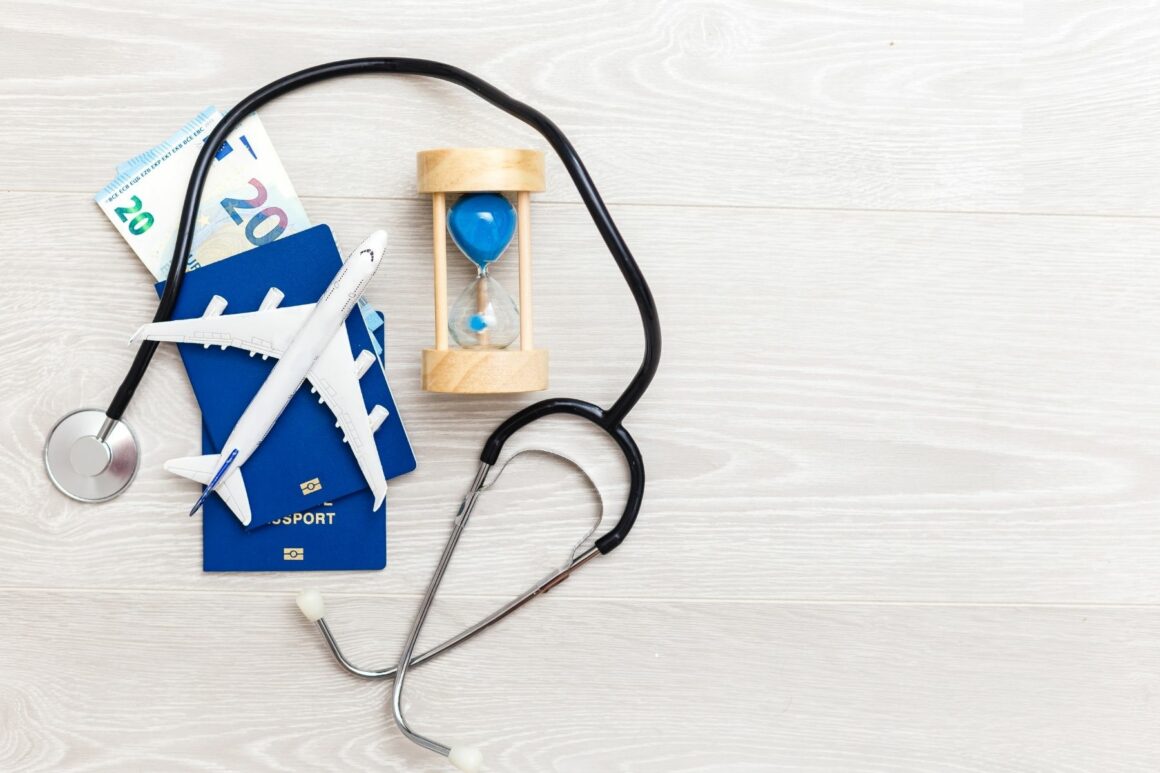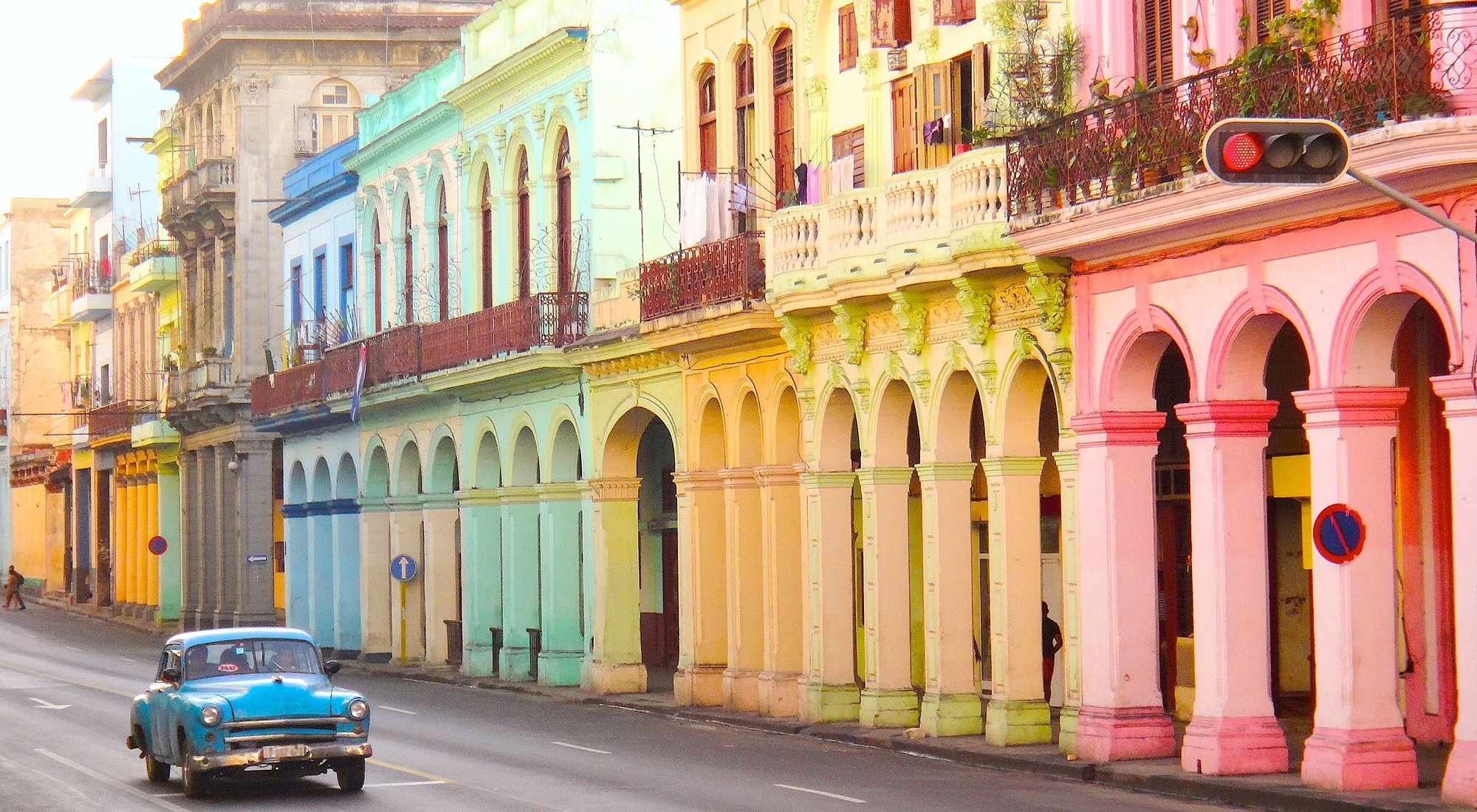Travelling offers exciting opportunities to explore new places, experience different cultures, and create lasting memories. However, if you have a medical condition, preparing for a trip requires some extra planning to ensure your health and safety while on the go. Whether you’re managing a chronic illness, recovering from surgery, or dealing with a temporary condition, taking the right steps can help you travel confidently and safely.
Here’s a comprehensive guide on how to travel safely with a medical condition to ensure your trip is as enjoyable and worry-free as possible.
How to Travel Safely with a Medical Condition
Consult Your Doctor Before You Travel
Before embarking on any trip, it’s crucial to consult your healthcare provider, especially if you have a medical condition. Your doctor can assess your condition, offer advice on managing your health while travelling, and make sure you’re fit for the journey.
- Medical Clearance: Depending on your condition, your doctor may give you medical clearance for travel. If you’re flying, they can advise on any potential risks related to air travel, such as changes in air pressure or long periods of immobility.
- Travel Health Advice: Your doctor may suggest vaccinations, medications, or treatments tailored to your specific health needs, particularly if you’re travelling abroad. You’ll also need specific travel insurance for pre-existing medical conditions.
- Plan for Emergencies: If you’re travelling with a serious medical condition, ask your doctor for a plan in case of a medical emergency. This may include a list of hospitals or medical facilities in your destination and advice on managing your condition in different environments.
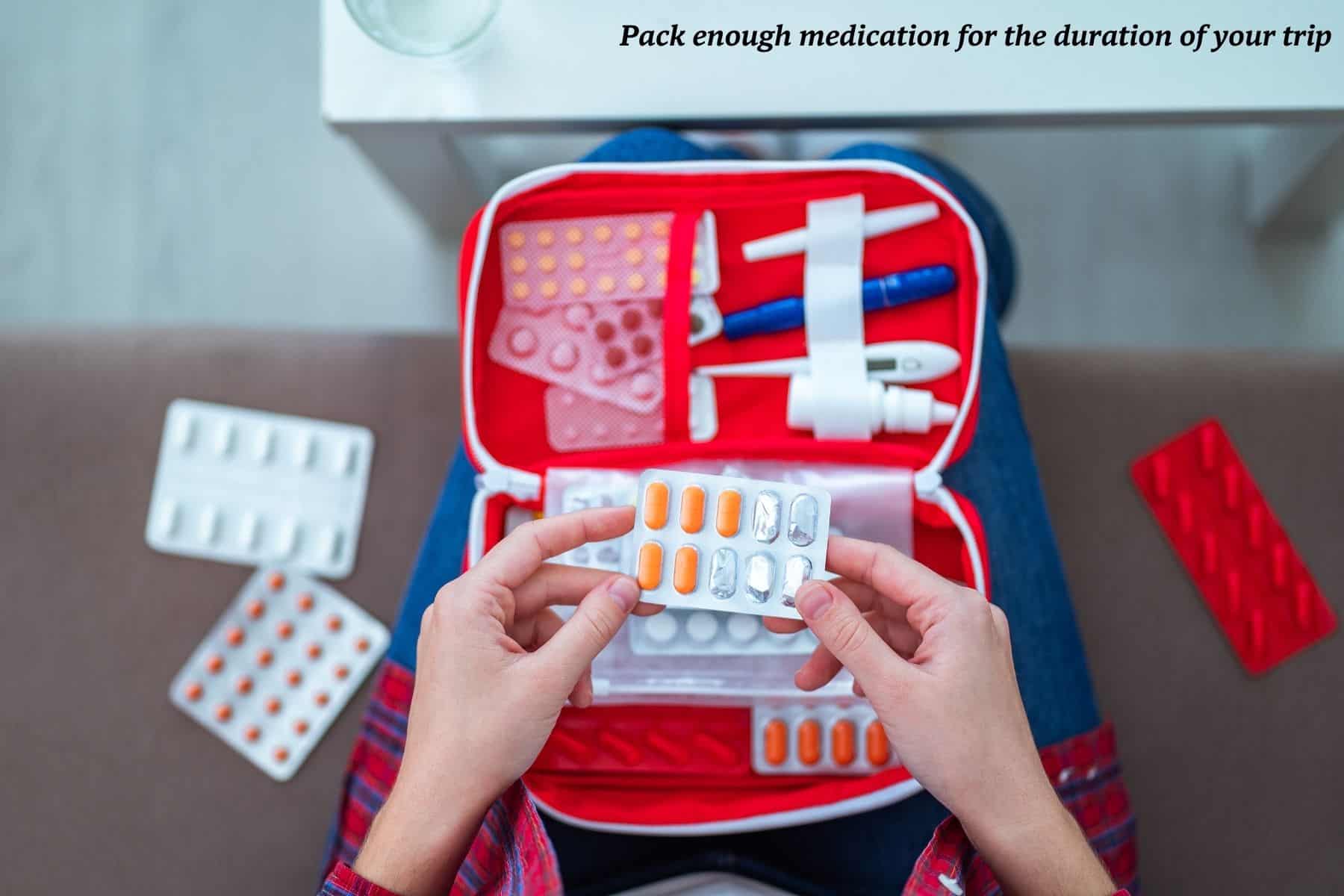
Pack Wisely: Bring All Necessary Medications and Supplies
Packing correctly is one of the most important steps to ensure you stay healthy while travelling. When travelling with a medical condition, your medication and essential health supplies should be carefully organised and easily accessible.
- Medication: Pack enough medication for the entire duration of your trip, plus extra in case of delays. Keep your medications in their original packaging, clearly labelled with your name and dosage instructions.
- Doctor’s Note: If you’re carrying prescription medication or medical devices (such as an inhaler, insulin pump, or nebuliser), carry a doctor’s note or prescription with you. This can help clarify any questions at airport security and prevent misunderstandings at customs.
- Health Supplies: Bring any additional supplies related to your condition, such as glucose monitors, pain relief medications, or any equipment required for managing your illness. If you need to take specific precautions (e.g. avoiding sun exposure), bring items like sunscreen, hats, or protective clothing.
- Travel-Sized Items: Consider packing travel-sized versions of your health-related products, such as hand sanitisers, disinfectant wipes, or specific skincare items.
Keep Your Doctor’s Contact Information Handy
When travelling, it’s essential to have access to medical help if needed. To make sure you’re prepared, have a list of important contacts, including:
- Local Doctor: If you’re travelling internationally, research the local healthcare system and keep the contact details of a reputable doctor or medical facility in your destination.
- Emergency Contacts: Make sure you have the contact details of a family member, friend, or your healthcare provider who can be reached in case of an emergency.
- Insurance Information: If you have travel insurance, keep a copy of your policy and emergency contact details with you. Ensure your insurance covers medical emergencies abroad and provides coverage for pre-existing conditions, if necessary.
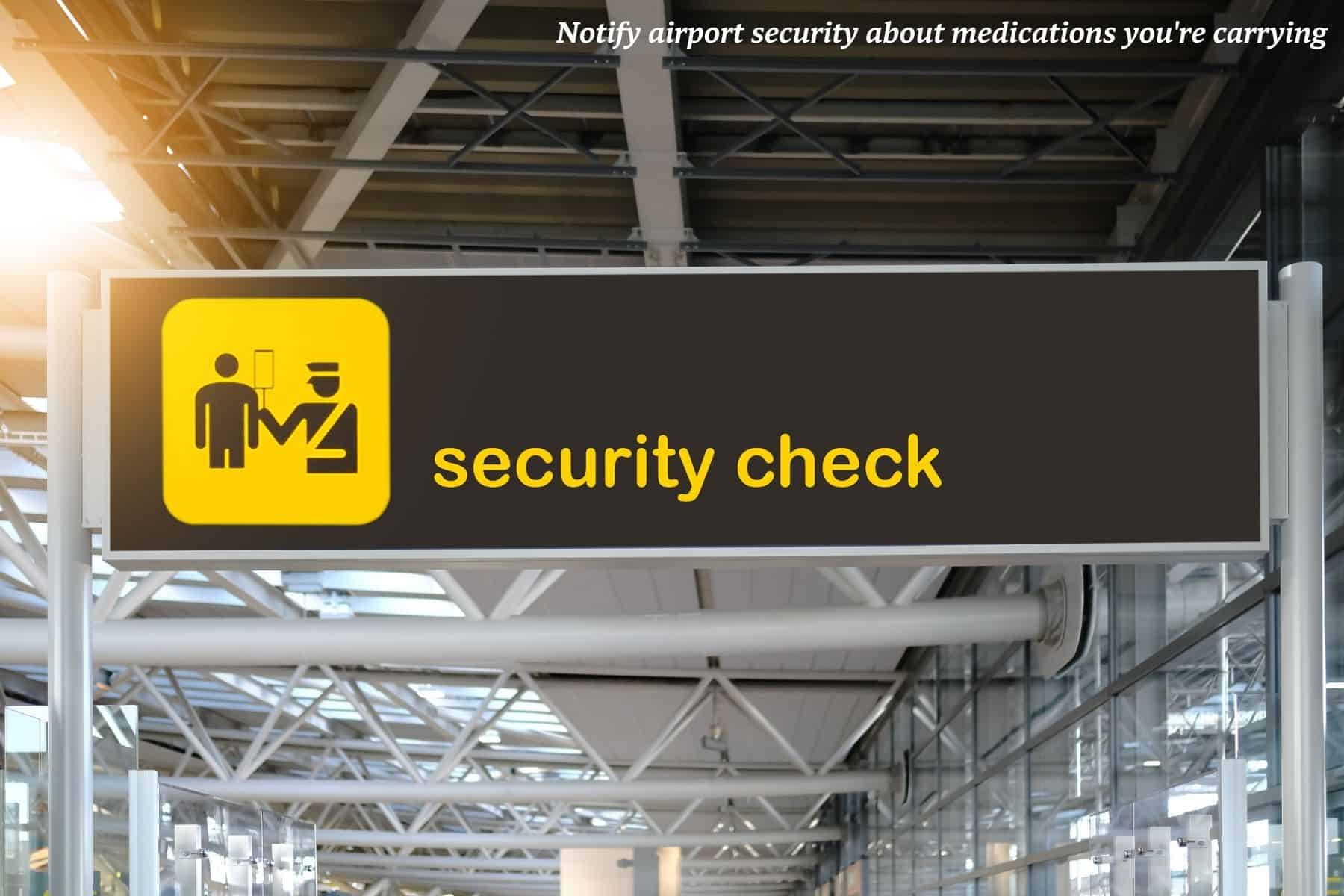
Prepare for Airport Security and Transportation
Travelling with a medical condition can sometimes involve extra steps at the airport and during transportation, so it’s essential to plan ahead.
Hydration and Movement: Staying hydrated and moving around during long flights or train rides is essential for everyone, but especially for travellers with medical conditions like diabetes or heart disease. Bring a refillable water bottle and take short walks when possible.
Airport Security: Notify airport security about any medical equipment or medications you’re carrying. Many airports offer special lanes for travellers with medical needs, making the screening process smoother. If you’re carrying liquid medications, be aware of the liquid restrictions, but exemptions are often made for essential medications.
Travel Comfort: If you have difficulty walking or standing for long periods, consider requesting assistance at the airport. Most airports offer services like wheelchair assistance or priority boarding, which can make your journey more comfortable.
Know Your Travel Insurance Policy
Travel insurance is a must for anyone travelling with a medical condition. Not all policies cover pre-existing conditions, so it’s essential to carefully review the terms before purchasing. Here’s what to look for:
- Pre-Existing Condition Coverage: Check whether your travel insurance covers treatment for your medical condition. Some insurance providers offer policies specifically for travellers with pre-existing health issues.
- Emergency Evacuation and Medical Care: Ensure your policy covers emergency medical care, evacuation services, and repatriation (returning home for medical treatment if necessary).
- Cancellation and Trip Interruption: Some travel insurance policies will cover costs if you need to cancel or interrupt your trip due to medical reasons. This can include missed flights, hotel bookings, or tour reservations.
Plan for Emergencies Abroad
While emergencies can happen anywhere, travelling internationally requires additional preparation to ensure you can get the medical care you need in case of an unexpected health issue.
- Emergency Medical Care: Research the healthcare system in your destination country. Make a note of local hospitals, clinics, and emergency numbers. In many countries, the emergency services number is 112, but it varies by location.
- Language Barriers: If you’re travelling to a country where you don’t speak the language, learn a few basic health-related phrases, or have them written down, such as “I need help,” “I have diabetes,” or “I am allergic to [substance].” Many countries also have English-speaking medical staff, especially in tourist areas.
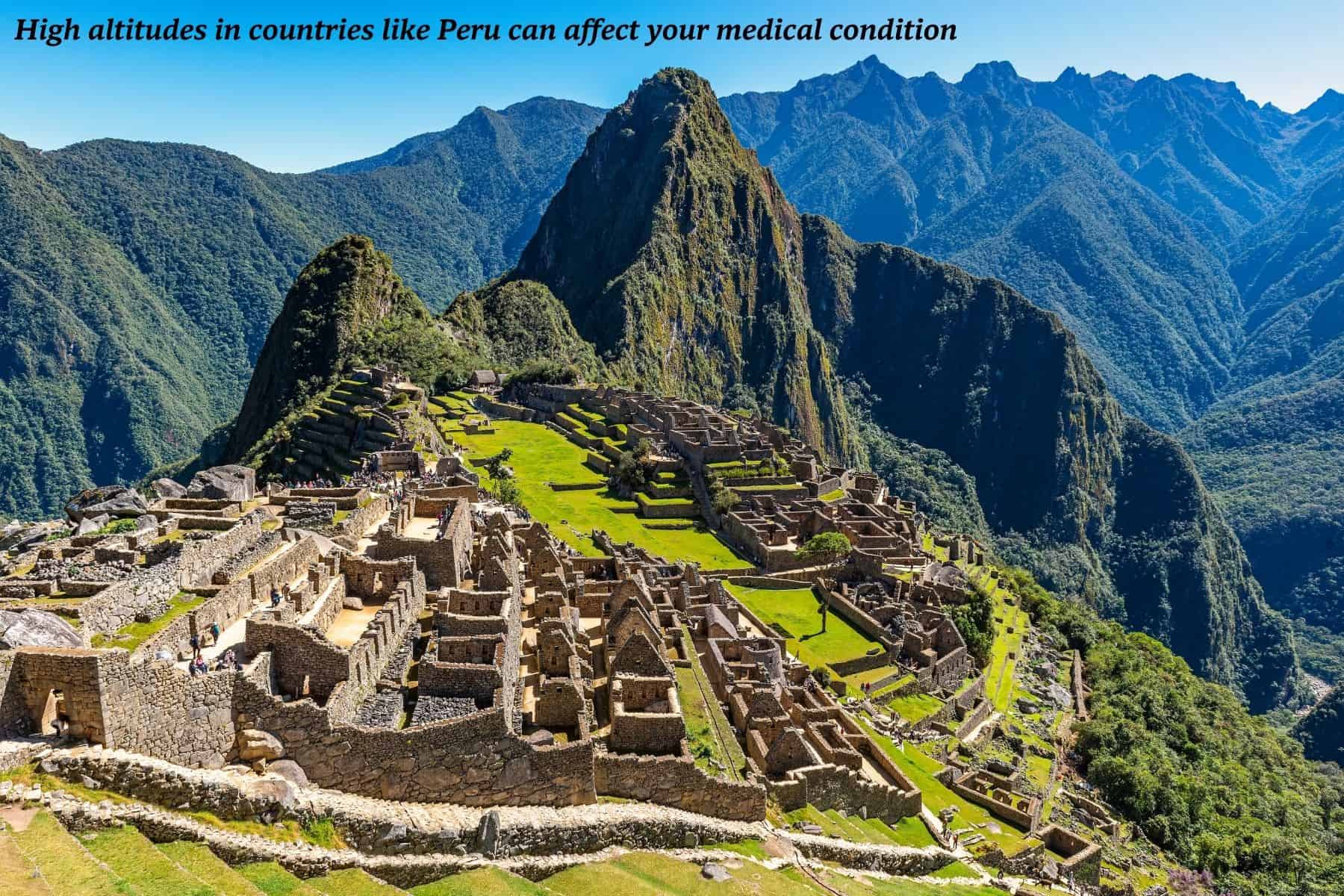
Take Precautions for Environmental Changes
Environmental changes, such as climate, altitude, or air quality, can affect your medical condition. Whether you’re travelling to a tropical destination like Costa Rica, a high-altitude region like Peru, or a very hot or cold climate, make sure you take the necessary precautions:
- Weather and Temperature: If you have respiratory conditions like asthma, extreme temperatures or polluted air might worsen your symptoms. Pack appropriate clothing and medications to mitigate these effects.
- Altitude: If you’re travelling to high-altitude destinations, such as mountain resorts or trekking areas like Argentina, check with your doctor about any potential impact on your condition, especially if you have heart or lung issues.
- Vaccinations: For certain conditions, such as travelling to regions with malaria or other infectious diseases, vaccinations or preventative medications may be required. Make sure you are up to date with your vaccinations, and ask your doctor about any additional health precautions. If you’re coming from the UK, be sure to check out the NHS travel vaccination advice before you leave.
Know Your Limits and Pace Yourself
Travelling with a medical condition doesn’t mean you have to miss out on enjoying your trip—it just means being mindful of your health. Take the time to listen to your body and pace yourself to avoid unnecessary stress or exertion.
- Rest and Relaxation: Schedule plenty of downtime in your itinerary. Overexerting yourself can lead to flare-ups of your condition, so try to plan for a mix of sightseeing and relaxing activities.
- Stay Active: While rest is important, gentle physical activity like walking or stretching can help with circulation and prevent stiffness, especially during long flights or road trips.
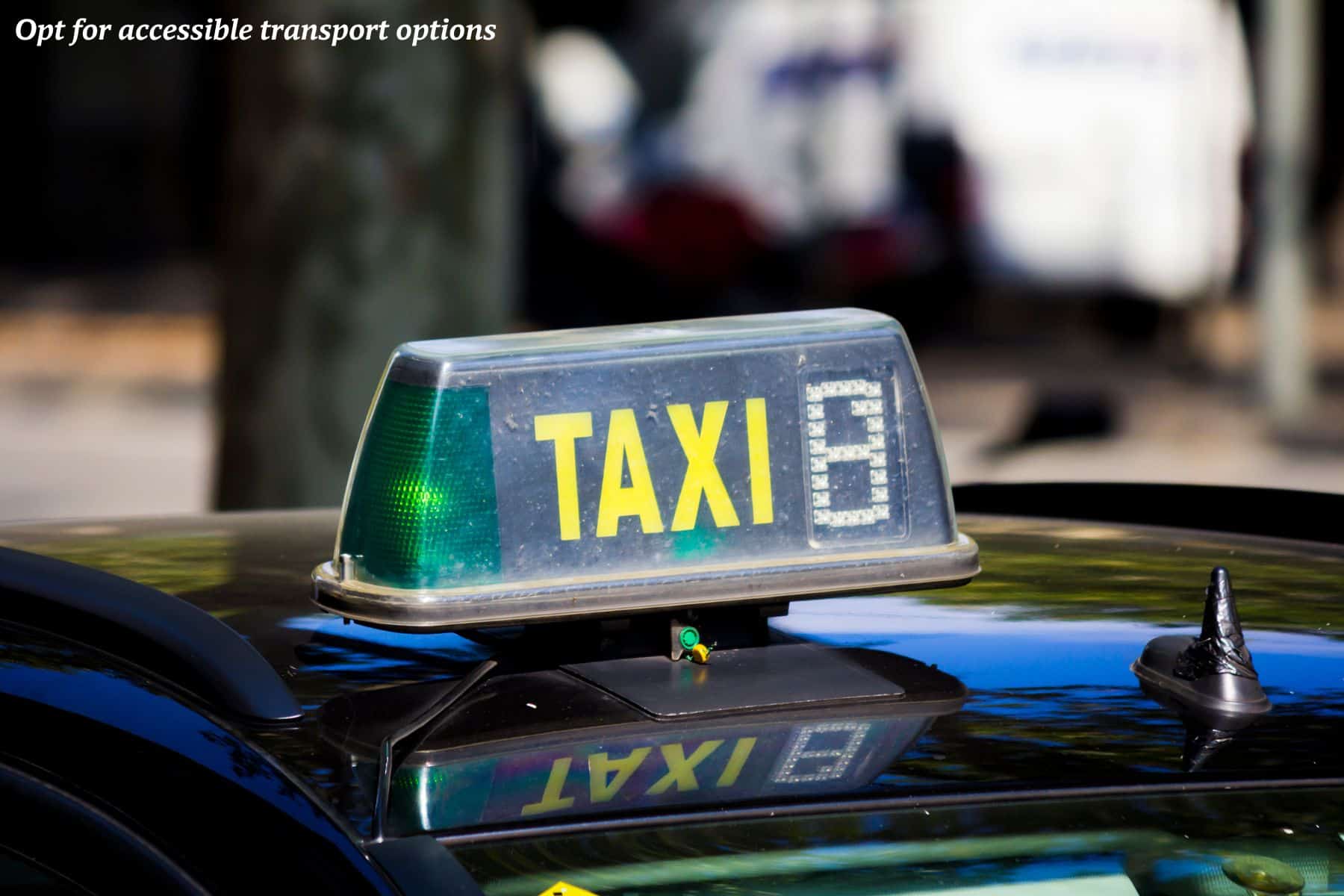
Consider Accessible Travel Options
If your medical condition affects mobility, consider choosing accommodations, transportation, and activities that are specifically designed for accessibility. Many destinations now offer accessible options for travellers with limited mobility, including wheelchair-friendly attractions, hotels with elevators, and taxis equipped for people with disabilities.
- Wheelchair Assistance: Many airlines and airports offer special services for passengers who need assistance, such as providing wheelchairs or help with boarding. Make arrangements in advance to ensure you get the help you need.
Conclusion
Travelling with a medical condition requires thoughtful preparation, but with the right planning and precautions, you can enjoy a smooth and safe trip. By consulting your doctor, packing carefully, ensuring you have the proper insurance, and understanding the healthcare options in your destination, you’ll be well-equipped to handle any challenges that arise during your travels.
Remember, the goal is to focus on enjoying the experience while maintaining your health and well-being. Safe travels!
